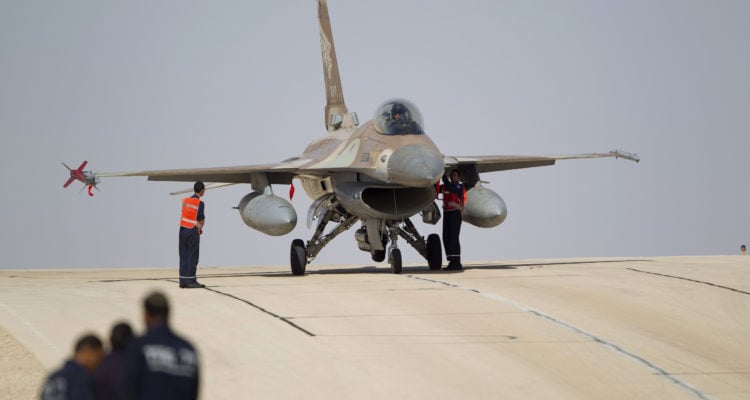Israel has kept its military operations in Syria shrouded in ambiguity – until recently.
By Daniel Krygier, World Israel News
Ever since Israel bombed Syria’s secret nuclear reactor in 2007, the Jewish state’s military operations in Syria have been coupled with a policy of ambiguity.
For many years this policy served Jerusalem’s interest: instilling fear in Israel’s enemies while avoiding an escalation that could lead to a full scale war. However, recently Israel has decided to openly take credit for its extensive military operations in Syria against mainly Iranian and Hezbollah targets.
Why has Jerusalem’s Syria policy changed?
Prime Minister Benjamin Netanyahu and former IDF Chief of Staff Gadi Eizenkot openly admitted that Israel has carried out numerous military operations against hostile targets in Syria. There are a number of reasons behind Israel’s new Syria strategy.
After Israel’s soft response to Hamas’s latest extensive rocket attacks on Israel’s south, the Jewish state’s enemies smelled weakness in Jerusalem. Restoring Israeli deterrence therefore remains a key goal.
Secondly, the U.S. decision to leave Syria was likely interpreted by Iran as a green light to act with impunity in Syria. By openly taking responsibility for its military operations in Syria, Israel is telling Tehran that it will not tolerate an Iranian military entrenchment in Syria.
While understanding Israel’s security needs, Russia had criticized Jerusalem’s military involvement in Syria. The shipment of the advanced Russian S-300 anti-missile system to Syria has emboldened Israel’s adversaries Iran and Hezbollah in believing that they are somehow immune to Israel’s military responses.
In fact, Tehran has stepped up its military entrenchment in Syria as well as its threatening rhetoric against the Jewish state. Shipments with arms are airlifted regularly from Iran to Syria. By abandoning its former ambiguity, Israel is telling all parties that Jerusalem will continue to enforce its red lines in Syria.
While Moscow and Jerusalem have their disagreements, Russia understands that it cannot prevent Israel from defending herself against Iran’s military threats and provocations. Israel’s new Syria policy is sending an important message to Russia that Moscow’s regional interests are best served by applying pressure on Iran to back off.
Moscow and Jerusalem both seek stability in Syria. Russia increasingly understands that Iran’s military threats against Israel undermine Moscow’s strategic interests in Syria. Russia recently denied in public that Iran is an ally. Moscow also articulated public support for Israel’s security. This indicates that Russia increasingly sees Tehran as an unwanted troublemaker in Syria by picking a fight with Israel.
Iran is still committed to its strategic goal of establishing an imperial Shiite corridor from Tehran to the Mediterranean.
However, squeezed between U.S. economic sanctions and extensive Israeli military operations against Iranian forces in Syria, Tehran is increasingly paying a high price for its aggressive imperialist policies in the Middle East.





